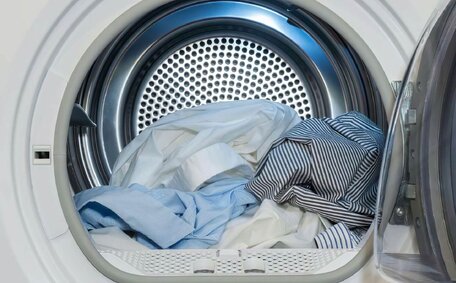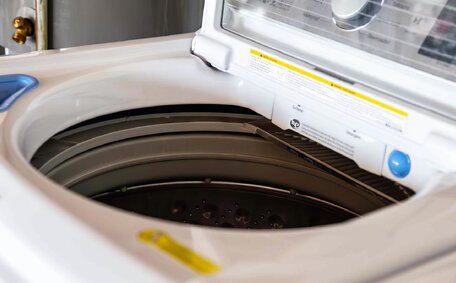Introduction to Environmental Impacts on Hot Water Efficiency
An efficient and environmentally friendly hot water system is essential for reducing energy bills and your carbon footprint. Different environmental factors like temperature, climate, and location can significantly impact how well various types water systems perform.
Here in Oatlands, the moderate Sydney climate means heat pump and solar hot water systems tend to work well. However, a traditional electric hot water system, gas hot water systems, or solar with electric boost may still suit some households’ needs and budgets better. Assessing the long-term cost benefits against the initial investment is key to achieving financial savings.
This article offers guidance to homeowners and businesses on selecting hot water systems tailored to their specific circumstances. We will examine how factors such as ambient temperature changes, potential for solar exposure, and strategic installation position contribute to system efficiency and share maintenance strategies to enhance performance.
Choosing the appropriate technology and maintaining it can significantly reduce water heating costs and environmental impact.
Understanding Temperature Effects
Ambient air temperature plays a significant role in the efficiency of some hot water systems, especially heat pumps. Comprehending a heat pump’s operation within a hot water system is important for optimising efficiency. By extracting heat air from the surrounding environment and using a compressor and refrigerant to concentrate that heat energy in your water tank.
Colder outdoor temperatures reduce how much heat a heat pump water heater can extract from the energy source in the environment, noticeably impacting your energy bill. Air below 7°C to 10°C contains little heat to transfer. This can cause heat pumps to achieve 50-70% less efficiency than their rated capacity during very cold weather, significantly increasing the demand for electric heat and driving up energy bills.
In Oatlands’ milder climate, heat pump systems can be up to 65% more cost-effective than electric storage water heaters. However, winter nights regularly get cold enough that systems may require electric elements to store hot water and boost temperatures.
Sizing your heat pump system correctly, installing it in a warmer area, and insulating pipes can reduce the reliance on boost heating, further optimizing efficiency and cost savings.
Climate Influences on System Selection
The climate in Oatlands is a major factor in determining the most efficient and economical hot water system.
Our moderate temperatures render both heat pump and solar water systems highly effective in our locale. Heat pumps extract free ambient heat to heat water, which means they use much less electricity than traditional electric hot water or gas systems. This saves 50-65% on water heating costs while reducing greenhouse gas emissions.
However, during Sydney’s cooler nights, the efficiency of pv system and heat pump technologies drop. Most models are designed to heat water only when necessary and have electric boosters to maintain temperatures, but optimising installation and insulation minimises their use.
Solar hot water also works very well in our climate. Sunny days allow solar water heater collectors to harness the sun, providing adequate hot water for a household’s needs with little to no electricity boosting.
Consideration of usage needs and long-term savings is critical when selecting a hot water system.
Proper maintenance, including descaling and anode rod checks, enhances the efficiency and lifespan of any hot water system. Ultimately, for residents of Oatlands, heat pump and solar hot water systems often provide superior performance, cost savings, and environmental benefits.
Installation Considerations
Where and how a hot water system is installed can significantly impact its real-world efficiency and running costs.
Electric heat pump and solar collector units should be sited in sunny, well-ventilated areas, unlike instantaneous systems, which have different requirements. Such placement avoids blockages from dirt or leaves, maintaining essential airflow and sunlight for heat pump and solar hot water systems. Units exposed to cold southerly winds or winter shade may activate more expensive electric hot elements more often.
Insulating your hot water heater pipes, especially external ones, results in a lower hot water demand since it reduces standby heat loss, meaning less reheating is needed. Lagging jacket pipe insulation is ideal for areas with extensive sun exposure to minimise hot water usage. Closed-cell rubber foam works well in shaded areas prone to moss and damp.
Placing the hot water storage tank close to high-demand outlets like showers or kitchens ensures more effective hot water delivery. This enables water to save money your energy bills as it retains more heat energy on its journey from tank to tap. Long uninsulated pipe runs to distant bathrooms waste heat and money.
Anode rod inspections and tank descaling every 1-2 years extend the longevity of all hot water systems. Catching minor leaks early prevents the worst damage too. Contact our Oatlands plumbing team if you notice any issues or need assistance maintaining your hot water system.
Comparing System Types
Comparing various hot water systems involves key considerations that affect both energy efficiency and system appropriateness:
Operating Costs
Heat pumps, using up to 65% less electricity than traditional electric storage tanks, offer substantial energy savings, albeit with a higher initial cost. They extract free ambient heat rather than generating it from electricity, making them more cost-effective than electric water heaters. Nonetheless, pump hot water systems typically carry higher initial costs, in some instances thrice as much as entry-level units.
Solar hot water also has minimal operating costs. It utilises heat pump solar hot technology but needs electricity or gas backup heating on overcast days. The expenses associated with solar heat pump systems align with those of traditional heat pump models.
Electric and gas storage heaters, as well as continuous flow water systems, are cheaper to install but have the highest energy bills long-term. Gas electric options, utilising a gas burner, can be a more enviro-conscious choice when considering the climate impact.
Efficiency Dependencies
Heat pumps can be used in cooler climates but may lose efficiency. Performance diminishes when ambient temperatures dip below 10°C, a significant factor for systems dependent on environmental conditions.
Electric and gas systems maintain a consistent heating output regardless of weather conditions. However, they contribute to higher energy consumption than renewable storage gas options overall.
Installation Considerations
Proper positioning of heat pumps and solar collectors can maximise their exposure to airflow and sunlight. Insulating pipes also enhances efficiency, as systems can retain heat more effectively.
Electric and gas heaters’ enclosure within your home makes their output more consistent year-round. But it’s still wise to locate tanks close to high usage points.
Professional installation and preventative maintenance optimise the performance and longevity of pump water heaters and other types of hot water systems.
Optimizing Efficiency Based on Your Environment
Oatlands homeowners have multiple steps available to them for improving their existing hot water system’s efficiency cost-effectively.
Insulate Pipes & Reduce Heat Loss
Insulating pipes to save energy and reduce standby heat loss can decrease the electricity needed for your storage water heater. DIY foam lagging is cost-efficient and straightforward to install, and it’s also vital to insulate indoor pipes leading to far-off taps.
Strategic Tank Positioning
Moving your hot water storage tank nearer to frequently used outlets, such as showers or kitchens, allows the water to maintain more thermal energy en route from tank to faucet.
Upgrade To Efficient New Systems
Consider upgrading to a solar heat pump or solar hot water system for improved efficiency in suitable homes. We offer product selection guidance and tailored installations to optimise performance and savings in Oatlands’ climate.
Moreover, the NSW government offers rebates up to $1,000 for households adopting energy-efficient hot water units. Contact our team to check your eligibility.
Routine anode rod inspections and descaling also prolong the lifespan of all system types. Optimising hot water efficiency not only saves money but also reduces environmental impact.
Mitigating Environmental Impact
All hot water systems have some environmental impact through energy use and materials. Nevertheless, by opting for more energy-efficient options, we can mitigate this impact.
Using renewable technologies like heat pumps and solar hot water can cut emissions by up to 65% compared to electric or gas units. They also qualify for rebates, offsetting higher install costs over time.
When replacing older hot water systems, consider donating recyclable components or ensuring materials like copper pipes are recycled responsibly.
Checking a system’s energy factor (EF) rating aids selection. The higher this figure, the more efficient the unit is. New heat pumps and solar systems often have excellent EFs.
We ensure eco-friendly decommissioning and disposal of out-of-service hot water systems and assist with upgrading to newer, eco-friendlier models. Upgrading to efficient systems may also qualify for sustainability initiative rebates.
Contact Oatlands Plumbing to learn about mitigating your home’s hot water environmental impact through upgrades, recycling, and responsible maintenance.






